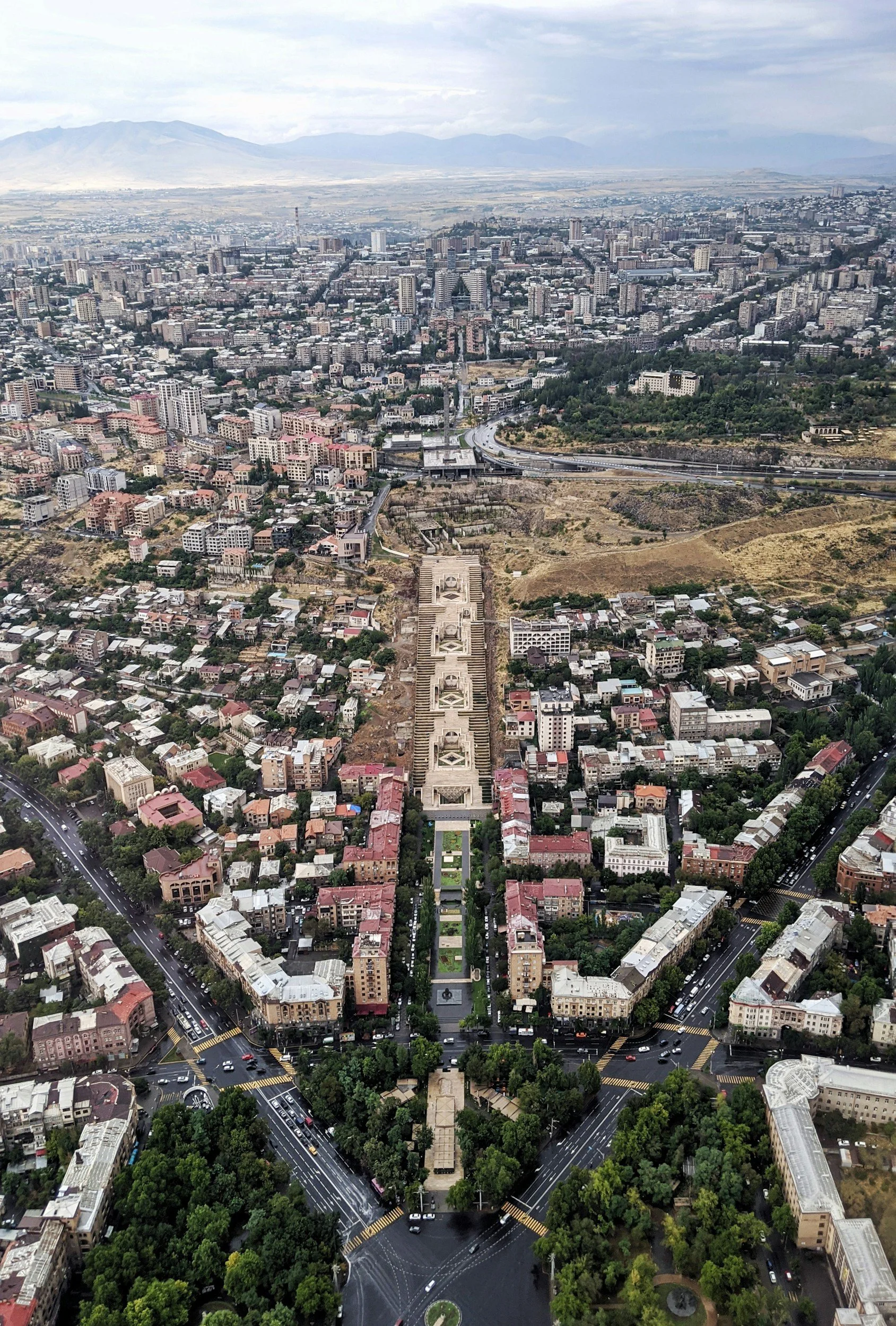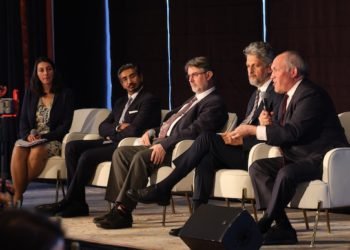Dhruva Jaishankar, Executive Director, ORF America joined a panel discussion on “Armenia’s New Balance: Russia, the West, and the Future of the South Caucasus” as part of the Applied Policy Research Institute of Armenia’s New York meeting on October 21, 2024. The meeting was part of the 93rd General Assembly of the Armenian General Benevolent Union.
The following details originally appeared on Asbarez.
As part of the 93rd General Assembly of the Armenian General Benevolent Union, the Applied Policy Research Institute of Armenia held its New York Meeting, titled “Armenia’s New Balance: Russia, the West, and the Future of the South Caucasus.” The event served as a platform for dialogue with U.S.-based think tanks, providing a unique opportunity to explore their perspectives on Armenia’s evolving foreign policy and security landscape.
The meeting featured an opening session with Ambassador John E. Herbst, Senior Director of the Atlantic Council’s Eurasia Center. Ambassador Herbst discussed the potential impacts of the upcoming U.S. elections on the South Caucasus. He indicated that different election outcomes could have varying implications for regional stability, with each scenario presenting its opportunities and challenges.
Given Armenia’s ongoing efforts to cultivate relationships with new partners and traditional allies to pursue enhanced military, political, and economic resilience, the event also included a panel discussion on Armenia’s strategic realignment in a multipolar world. Panelists included Dhruva Jaishankar of the Observer Research Foundation America, Anatol Lieven of the Quincy Institute, Garo Paylan of the Carnegie Endowment for International Peace, and Michael Rubin of the American Enterprise Institute. They examined how geopolitical shifts influence Armenia’s policy choices, emphasizing smaller states’ unique challenges and the importance of adopting a strategic approach to navigate these complexities.
The discussion highlighted Armenia’s ongoing quest to balance its security priorities and the importance of building partnerships to strengthen deterrence and defense. Participants, including Colonel (Retired) Robert E. Hamilton of the Foreign Policy Research Institute, Nerses Kopalyan of the University of Nevada, Las Vegas, Leonid Nersisyan of APRI Armenia, and Margarita Tadevosyan of George Mason University emphasized that, in a world marked by uncertainty, nations must be prepared to rely on their capabilities for security primarily. They noted that while support from partners may be available, complete guarantees or active defense should not be assumed.
In light of Armenia’s recent diplomatic and military challenges and broader concerns regarding threats to religious freedom, the meeting concluded with a discussion led by Ambassador Sam Brownback, Co-Chair of the International Religious Freedom Summit. Ambassador Brownback explored how Armenia could position itself as an advocate for international religious freedom, thereby strengthening its foreign policy initiatives.


